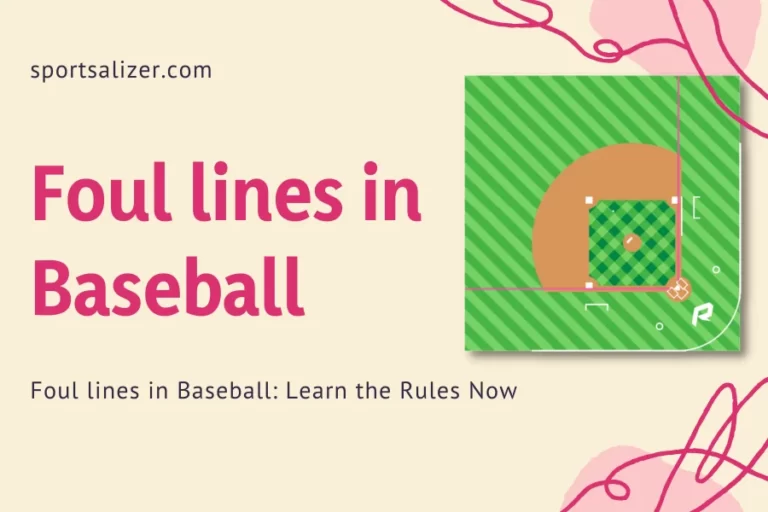Passed Ball Vs. Wild Pitch Clear Both Concepts Easily

Often while watching a match, you might encounter some errors the players make. Hence, the conflict of Passed Ball vs. Wild Pitch arises among the fans. People often confuse the two, so it is essential to know their differences.
Errors are common in any game, so you must know adequately about them. A passed ball and a wild pitch are the two most common pitching acts that occur because of the fielding team.
To better understand the game and know what is happening on the field, it is essential to know about all these things. This article will teach you about all these errors and much more.
Contents
Errors In Baseball
Before understanding the terms and their difference, let us first understand what an error in baseball is.
Error is the term used in baseball to show a mistake of the fielding team because of which the batting team can score a run. An error is declared by the official scorer, who keeps track of the hits, walks, strikeouts, and other scores.

An error is declared only to the fielding team players– catcher, pitcher, infielder, and outfielder. There are basically 3 types of errors in baseball:
- Fielding Errors: Occur when a fielder cannot catch the ball and get the baserunner out.
- Throwing Errors: Occur when a fielder throws the ball in such a way that the other teammate cannot catch it, due to which the runner can score.
- Tagging Errors: Occur when a fielder fails to tag a baserunner out.
Passed Ball vs. Wild Pitch
| PASSED BALL | WILD PITCH |
|---|---|
| A passed ball is caused when the catcher fails to catch a pitched ball, due to which the runner can advance toward the base. | A wild pitch is when the pitcher throws a ball so off the mark that the catcher is unable to catch it, and because of this, the runner advances toward the base. |
| A passed ball is considered to be the catcher’s fault. | A wild pitch is considered to be the pitcher’s fault. |
| If no runner advances to the base, it is not said to be a passed ball, irrespective of how badly the catcher handled it. | If the runner does not advance toward the base, no matter how wildly the ball was thrown, it will not be called a wild pitch. |
| If a runner reaches the base and scores due to a passed ball, it is not counted as a run. | If a runner successfully reaches the base and scores a run due to a wild pitch, he scores a run. |
| A stolen base is not awarded in the case of a pitched ball. | The stolen base is credited in wild pitch only if the runner advances before the pitcher serves. |
| An ERA is not counted in the pitcher’s score in a passed ball. | An ERA is counted in the pitcher’s score in case of a wild pitch. |
| If a ball is passed on the third strike and a runner reaches the first base, the official scorer calls for a strikeout and a passed ball. | If a wild pitch is served on the third strike and a runner reaches the first base, the official scorer calls for a strikeout and a wild pitch. |
Even though we have discussed errors, both of these situations appear to be errors. They are not considered errors in baseball.
The final decision to call a wild pitch or a passed ball lies in the hands of the official scorer. The official scorer cannot call a wild pitch or a passed ball if the fielding team gets an out before any runner can make it to the base.
If a baserunner can score a run as a result of a wild pitch or a passed ball, the score is not credited to his RBI.
Tips To Avoid Passed Ball And Wild Pitches
Below are some tips you can follow to avoid throwing a wild pitch or passing a ball:
- Good pitcher and catcher communication is the most important thing to keep in mind to avoid these mistakes on the field.
- The pitcher should have good hand and arm control to serve the ball perfectly and target it correctly toward the catcher.
- Along with the pitcher’s arms control, the catcher must also be good at blocking to catch the balls served by the pitcher quickly.
- The pitcher and the catcher must be focused on the pitches and the game and not get intimidated or distracted by the base runners.
- The weather also affects the pitcher’s throw; hence, you should consider it.
- The pitcher also needs to ensure not to throw the ball very powerfully as it is more likely to result in a wild pitch.
Most Passed Balls

Pop Snyder holds the record for having the maximum number of passed balls in MLB. He has a record for passing a total of 763 balls.
The record for the most number of balls passed by a player in a single season is set by Rudy Kemmler in 1883, with 114 balls passed.
Rube Vickers, Petralli, and Jerry Goff hold the record for most passed balls in a single game. Each of them passed 6 balls in 1902, 1987, and 1996 respectively.
Most Wild Pitches

Tony Mullane holds the record for having the maximum number of wild pitches in MLB history. He has a record for throwing 343 wild pitches from 1881 to 1894.
In the modern era, the record for pitching the most number of wild pitches is set by Nolan Ryan, by pitching 277 wild pitches.
The record for the most number of wild pitches thrown by a player in a single season was set by Mark Baldwin in 1889, with 83 wild pitches pitched.
Bill Gullickson, Phil Niekro, and J.R. Richard hold the record for most wild pitches thrown in a single game. Each of them has pitched 6 wild pitches.
FAQs
Is a ball in the dirt a passed ball or a wild pitch?
A ball in the dirt is considered to be a wild pitch as it is out of a catcher’s range.
Can a batter run on a wild pitch?
If there is no other runner on the base, then the batter becomes the runner and advances toward the bases. The ball will be called a wild pitch if the batter reaches the second base.
Do Passed Balls and Wild Pitch count against fielding percentage?
As we already know, that passed balls and wild pitches are not counted as errors; hence they are not counted against the fielding percentage.










